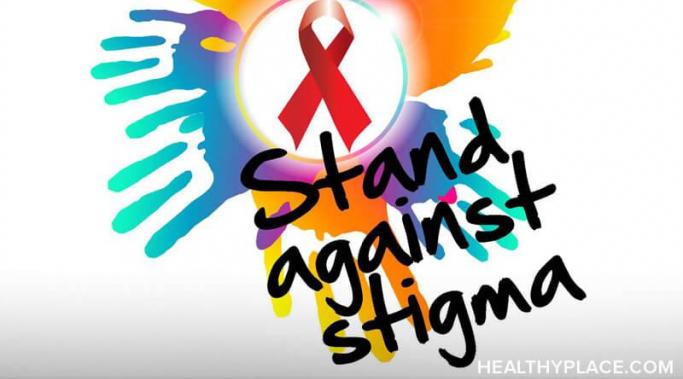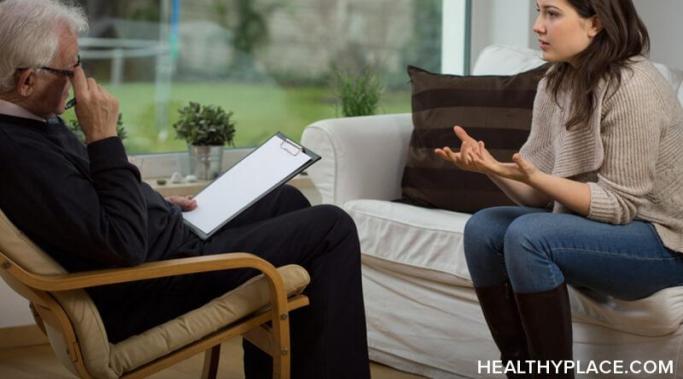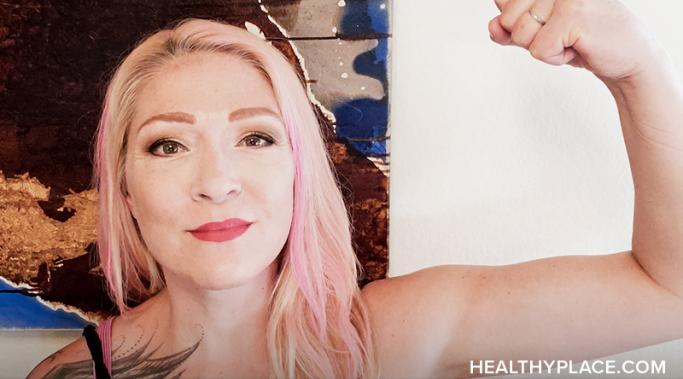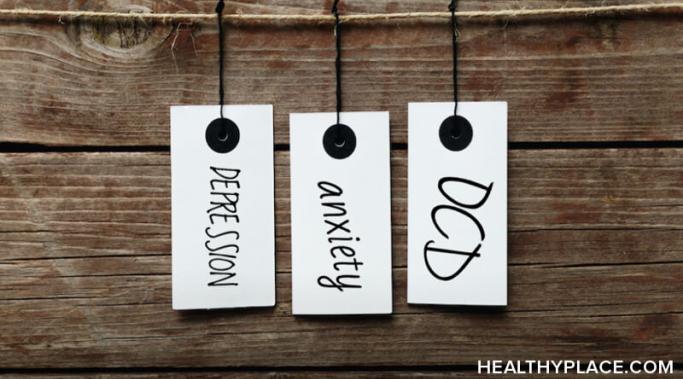Even though I've been working toward mental health recovery for years now, feeling better makes me nervous. I spent the past few months struggling harder than I have in quite a while, so I reached out to my psychiatrist, and he prescribed me a new medication. He said it should help prevent some of my suicidal ideation and give me more energy so I would be less overwhelmed by my life. There are so many things that can go wrong with new medications, but that didn't happen for me. It worked exactly like the doctor said it would. I feel much better, and that makes me nervous.
Recovering from Mental Illness
For many people with mental illness, mental health medication and recovery go hand in hand. Unfortunately, psychiatric medication comes with a lot of stigma and stress. There are a lot of people who don't understand how psychiatric medication really works or why it's so important for many people in recovery, and their stigmatized view of medication can stick in our brains long after we've heard them say something.
Therapy has been my number one tool in my recovery, but every now and again, my therapist is wrong about something, and it freaks me out. I've had several therapists over the years, and in the past, when a therapist misunderstood something I said or made an assumption that was incorrect, I had no idea how to respond. I felt ignored, wrong, and bad, and I had no idea how to say any of this to them. But it doesn't have to be that way. It is possible to speak up when you're being misunderstood.
November 28, 2014, I made the hardest decision of my life. I left my husband and son so I could get well. I'd been sick for almost four years with what started as prenatal depression and ended as the deepest, darkest postpartum depression I could imagine. I experienced constant daily suicidal ideation for years. When I lost my ability to eat and sleep, I reached the end of my resiliency. (Note: This post contains a trigger warning.)
In general, suicidal thoughts are not normal, but they have been for me lately. I have been actively working toward my recovery for over six years now, and yet for the last two months, I've experienced some kind of suicidal thought nearly every day. I don't want to die, I just want to hit "rock bottom" so I can finally actually get better. (Note: This post contains a trigger warning.)
I’m Court Rundell and I’m thrilled to co-author the Recovering from Mental Illness blog at HealthyPlace. From a very early age, I was painfully aware that my internal life was atypical, and I needed to keep it a secret. I had panic attacks and disassociated from my body regularly by seven; I attempted suicide at 11 and started abusing drugs and alcohol by 12.
Limitations in mental health recovery are real; but lately, I've been doing everything in my power to ignore my increasingly obvious limitations. I just don't want to be mentally ill anymore. I want it to go away so I can read and write and be a good wife and mother without a herculean effort. Even though I've been in recovery for years now, part of me still believes that if I just ignore my limitations and shame myself for having them in the first place, I'll be able to just breeze past them. Every time, this leads to a complete meltdown that forces me to honor my limitations, so you'd think I would know better by now, but here I am again, in meltdown mode.
Health anxiety used to be called hypochondria, and it's a highly stigmatized mental health condition. Instead of being taken seriously, health anxiety is often reduced to being "dramatic." I have dealt with health anxiety on and off for the last seven years, and I want to share my experience so others won't have to feel as alone as I have.
Psychiatric medication is a tricky topic in the world of mental health for a lot of reasons. These drugs have a dark history of being used for the convenience of doctors rather than the wellbeing of patients, the pharmaceutical industry makes a huge profit off of them, and they come with a lot of very negative mental health stigma.
When I first read online that once I started really digging in to my recovery, things would get worse before they got better, I thought I understood. I thought it meant that acknowledging my pain would cause me more pain at first, but then it would heal and I would be "better." I knew that was a naive way of looking at things, but I still believed that would generally be the process. Boy, was I wrong.









